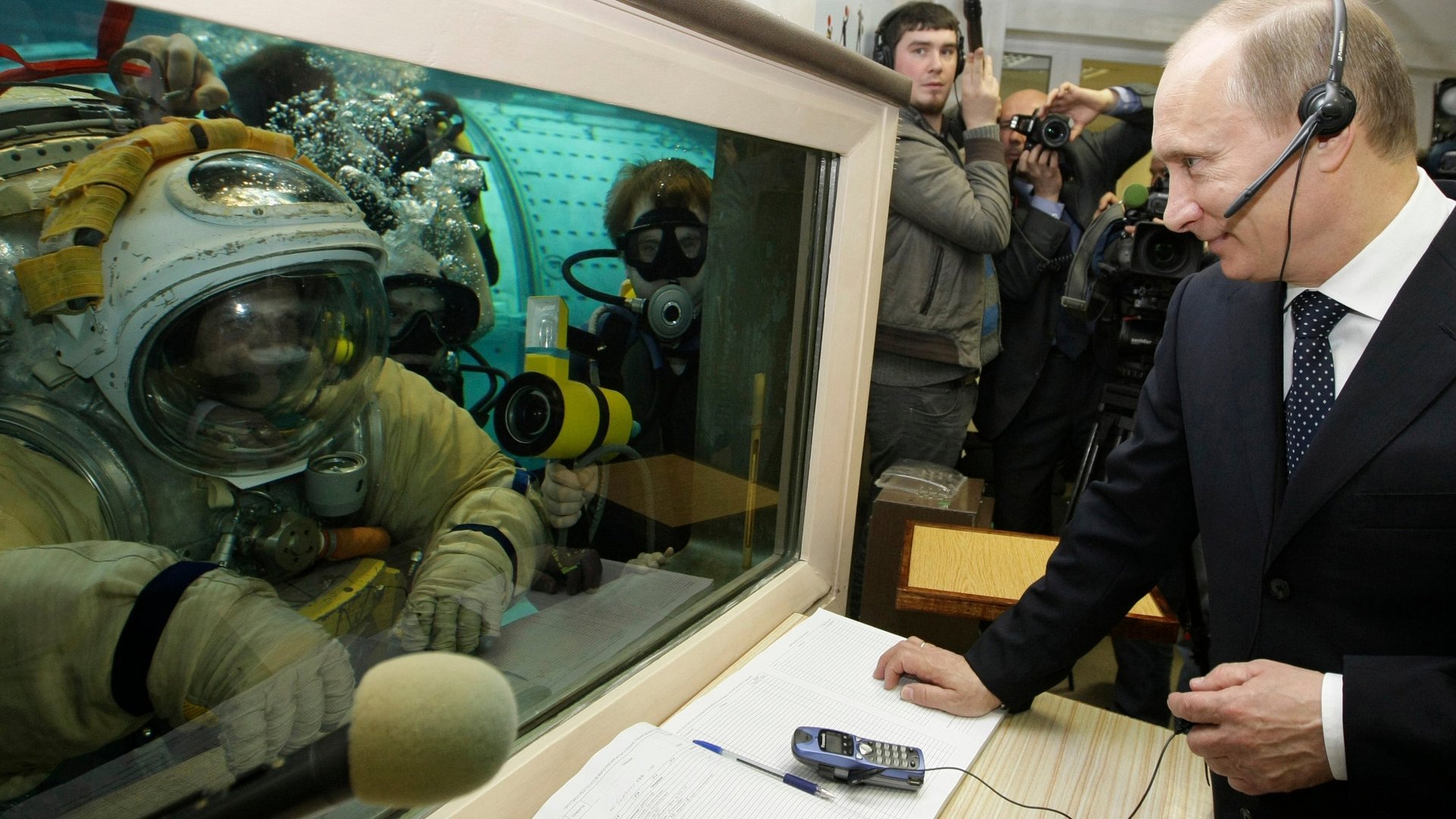SpaceX will launch the next GPS satellite, thanks in part to Vladimir Putin
It took SpaceX several years of rigorous inspections and a lawsuit to earn the right to bid for US military satellite launches. Now the company looks set to win its first competitive bid—but only after the sole opposing bidder bowed out, citing a US ban on business with Russia.


It took SpaceX several years of rigorous inspections and a lawsuit to earn the right to bid for US military satellite launches. Now the company looks set to win its first competitive bid—but only after the sole opposing bidder bowed out, citing a US ban on business with Russia.
Bidding closed yesterday on a contract to launch a next generation GPS satellite for the Air Force, which will be used for both government and private purposes.
United Launch Alliance, a joint venture of Boeing and Lockheed Martin which has held a monopoly on national security launches since 2006, told Reuters it would bow out of the program due to a controversy over the Russian engines used by its workhorse Atlas rocket.
That leaves SpaceX as the only possible winner. While SpaceX would not officially confirm that it bid, sources at the company said that one was placed.
But the prospect of winning by default apparently rankled SpaceX CEO Elon Musk, who called the prospect of ULA withdrawing ”nothing less than deceptive brinkmanship” in a letter to the Department of Defense in October.
After Russia annexed Crimea and backed separatists in eastern Ukraine in 2014, US lawmakers banned future purchases of RD-180 rocket engines for military satellite launches, in an attempt to deny funding to Russia’s military-industrial complex. A faulty refurbished model of a different Russian engine is thought to be the culprit in the destruction of an Orbital ATK rocket mission to ISS last year; foul play is not suspected.
The punishment intended for Vladimir Putin meant trouble for ULA: Its Atlas rockets, which rely on the RD-180, already cost more per launch than SpaceX’s Falcon 9 rocket, and its American-made alternative, the Delta, is even more expensive.
According to the companies’ own numbers, a Falcon 9 launch costs $80 to $90 million, an Atlas launch $164 million, and a Delta IV heavy launch $350 million; the US government’s own accounting agency contends that the average ULA launch is even more expensive, at $400 million per launch.
ULA does have a partnership to develop a new, cheaper, American-made engine with Jeff Bezo’s space startup, Blue Origin, but it will be years until it’s ready.
In the meantime, ULA has pushed Congress to end the Russian rocket ban, in the name of making sure that its current monopoly on national security launches isn’t replaced with a SpaceX monopoly. As Musk’s comments indicate, the SpaceX feels this move isn’t on the level. But the fear is real: SpaceX rockets have been grounded since a dramatic launch failure earlier this year, delaying several commercial launches as the company works to return to flight in late December.
As a compromise, the House and Senate have both passed a measure to approve four more RD-180 rocket purchases for national security work, and president Barack Obama has said he will sign it. ULA has five RD-180 rockets in its inventory. But the company maintains that it has committed its existing engines to civil flights and it can’t rely on the stopgap measure passing—no matter how likely that is.
The US military is one of the world’s largest purchasers of space services, with plans to spend at least $1.5 billion in 2015 on national security launches alone.